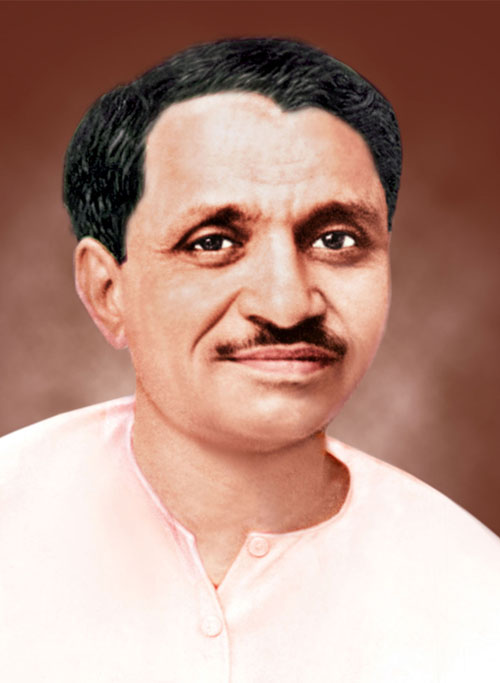WALTER K. ANDERSEN
When Democracy is a Sham
Of the various forms of government, he considered democracy the most natural, since it, more than any other, gave the nation a direct voice in the shaping of its destiny. But the 1965 Jana Sangh “Statement of Principles”, based on his concept of Integral Humanism, cautioned that political democracy is something of a sham unless it were also accornpained by economic and social democracy. Without the latter conditions, the political system would be manipulated by the privileged few for their own benefit. Under present conditions, Upadhaya thought it natural that people would resort to non-parliamentary agitation to improve their lot.
His 1967 presidential address is a fascinating document, for in it he gives his imprimatur to agitation as a legitimate means of mobilising the masses to resist exploitation. I shall quote a part of his speech, for it challenges the accusation of his detractors that his doctrines, however noble, over the long run, had the immediate effect of upholding the status quo.
“We should also be cautious about people who see in every popular agitation the hidden hand of communists and (who) suggest that the agitation must be crushed. In the changing situation at present, public agitations are natural and even essential. In fact, they are the media and expressions of social awakening. It is of course necessary that these agitations should be made instruments of a constructive revolution and not allowed to become violent or adventurist. Therefore we must actively participate in popular movements, and try to guide them. Those who are keen to preserve the status quo in the economic and social spheres feel unnerved by these movements and are wont to create an atmosphere of pessimism. We are sorry we cannot cooperate with them. We think these sections are trying in vain to halt the wheels of progress and avert the destiny of the country.”
Underlying Dilemma
He concluded this address, his last major public statement before his death, with a stirring expression of support for the poor and the powerless. “Every countryman (sic) is blood of our blood and flesh of our flesh. We shall not rest till we are able to give to every one of them a sense of pride that they are children of Bharatmata. We shall make Mother India Sujala, Suphala (laden with fruits and overflow-ing with water) in the real sense of these words.” He declared himself a karma-yogi seeking to bring about these goals, and he asked the audience to act in like manner.
This call to agitation underscores a dilemma in his thought : the achievement of social harmony in the future may necessitate a certain amount of disharmony to create a more perfect society (and the dilemma of course is not a unique one). Upadhyaya’s party in the late 1960’s and early 1970’s came increasingly to accept agitation as a legitimate technique for political change. This policy placed the Jana Sangh in the vanguard of those who opposed the government of the former Prime Minister and provided a tactical basis for cooperation with parties of different ideological standards.
Ideological Perspective
Even from the ideological perspective, Upadhyaya’s views brought the Jana Sangh closer to the other parties that now constitute the Janata. For example, the idea that economic planning should be shifted from urban-based, capital-intensive industry to rural-based labour-intensive, small-scale consumer industries finds support in his thought and was party policy. It was Jana Sangh policy even before the appearance of Integral Humanism, but it more firmly legitimised the policy within the party. Of course it is a major economic plank of the new government. The same is true for political decentralisation, another key objec-tive of the present government.
Consequently, I do not think it an exaggeration to say that Deendayal Upadhyaya’s views played a role in facilitat-ing the political actions which led to the creation of the present government. And I strongly suspect that his views now will receive far closer scrutiny and public attention than was the case in the past.
(Based on paper read on the occasion of Deendayal Upadhyaya Birthday Celebrations in New York on 25th September, 1977)


